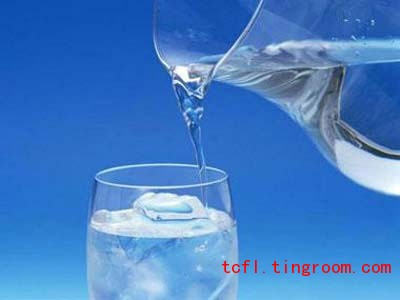南水北调进京长江水将添加“食品添加剂”

3月23日,市水务局启动10项“水体污染与治理”项目。市水务局相关负责人透露,10大项目中有一项是对南水北调的水质安全进行技术研究。为避免“长江水”在进京沿途受到污染,“长江水”将添加专用的食品添加剂,与北京现有的自来水进行勾兑后,进入千家万户,供居民饮用。
南水北调饮用水安全保障技术课题主要是研究多水源供水条件下不同供水水源及其长距离输送、储备过程中水质的变化规律。
“长江水”取样后用小白鼠试验
奥运期间河北水进京时出现“铁锈”问题,为了避免这种情况,市水务局有关负责人表示本市将考虑长江水在进入本市自来水管道前为其添加食品添加剂,然后再与现有的自来水进行勾兑,以满足本市居民长期以来习惯的自来水“味道”。
他同时表示,添加剂是国际上通用的物质,不会有任何安全问题,但为了确保安全,此次课题研究内容之一就是将处理过的“长江水”取样后用小白鼠试验,经过观察最终才会让其进入本市的自来水管道,主要的目的是确保长江水经过沿途的运输后还能安全地让市民饮用。
其他水污染治理举措
1. 密云水库装探头
十大项目中还有针对北京市水环境设施的监控和预警系统。 目前密云水库、京密引水渠等地区都采用生物监控的方式比如入水口饲养小鱼,来及时发现水质的变化。
今后,将在重要地区如官厅水库、密云水库等加装探头设备,用在线的方式进一步做好监督和预警。
2. 河蚌净化温榆河河水
今年还将启动北运河水系中游段的生态修复项目。市水专项办公室主任孙凤华介绍,目前技术人员通过水质监测和调查,初步明确了温榆河污染状况,今年将引进河蚌等生物,将这些生物放到温榆河养殖。他表示,本市过去在水体污染的治理过程中,非常注意发挥水生植物和动物的作用,河蚌可以用来控制水体中的污染物。
3. 芦苇吸收水中重金属
孙凤华介绍,今后在永定河湿地的建设过程中,技术人员会使用水草、芦苇、水葫芦等水生植物,用于吸收污水中的重金属等污染物,净化水质。
Food additives introduced in South-to-North Water Diversion Project
The municipal Water Supply Department launched 10 projects to deal with water pollution on March 23. A department official said that one of the projects aimed to investigate water safety. Before supplied to households, the water from the Yangtze River will be mixed with food additives and the water currently available in Beijing to prevent pollution of the city's water.
Given the multiple sources of water, the study of the technology involved in drinking water safety in the South-to-North Water Diversion Project focused on the variation and regulation of the water during the long-distance transfer and storage.
Water sample experimented with laboratory rats
During the Olympics, water from Hebei Province was stained by rust. To prevent it from happening again, an official from the municipal Water Supply Department said they were considering adding food additives into the water imported into Beijing and mixing it with local water to meet residents' taste buds.
He also said water safety is guaranteed because the additives are safe substances and used internationally. Moreover, they will study the processed water sample with laboratory rats. No water will be let into the tap-water pipes in Beijing until they decide it is clean and safe after observation and experiments to make sure the water is still drinkable after long-distance transportation.
Other measures to cope with water pollution
1. Cameras set in Miyun Reservoir
The projects also are responsible for monitoring facilities and operating warning systems. Now the Miyun Reservoir and the aqueduct between Beijing and Miyun are monitored with a biological method — fish raised in the water will give warnings timely once the water is polluted.
Next, cameras will be installed in important areas like Guanting Reservoir and Miyun Reservoir to reinforce the monitoring and warning system.
2. Freshwater mussels used to improve the condition of Wenyu River
The restoration of the ecosystem in the mid-North Canal will be initiated this year. According to Sun Fenghua, an official from the municipal Water Office, the technicians have made clear about the condition in Wenyu River by water quality monitoring and investigation. This year, freshwater mussels and other species will be introduced. Sun explained that Beijing had attached great importance to the utilization of the aquatic in water pollution treatment. Mussels can be used to control pollutants to keep the water clean.
3. Reeds to absorb heavy metals
Sun Fenghua added that aquatic plants such as waterweeds, reeds and water hyacinth will be cultivated as part of the construction of Yongding River Wetland to absorb heavy metals.
(China.org.cn translated by Wu Yikun, March 31, 2010)
 English
English Japanese
Japanese Korean
Korean French
French German
German Spanish
Spanish Italian
Italian Arab
Arab Portuguese
Portuguese Vietnamese
Vietnamese Russian
Russian Finnish
Finnish Thai
Thai dk
dk